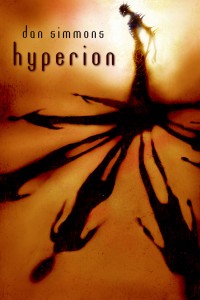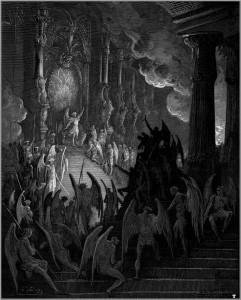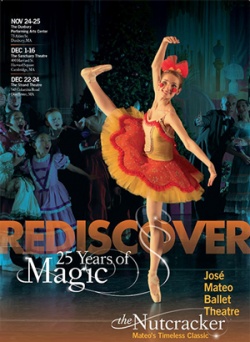December 3, 2012 at 11:41 am
In his recent work Gilgamesh: An Epic Obsession (http://bit.ly/TDl2BN), Theodore Ziolkowski takes a look at the ways in which the epic has manifested into our literature, art, music, and popular culture. The students of CC101 experienced this through David Ferry, whose translation of Gilgamesh they read this semester.
David Ferry has also written:
Concerning the importance of David Ferry’s work, Daniel Bosch has written a poem, called Ferryman (http://bit.ly/Xi9DKN)
Students are encouraged to further explore Ferry’s body of work.
By mdimov
|
Posted in Academics, Great Personalities, Uncategorized
|
Tagged Award, CC101, David Ferry, essay, Gilgamesh, manifestation, poem
|
November 30, 2012 at 11:17 am
Core students, faculty, and alumni are invited to contribute to "Marginalia." This will be a series of images showing how readers relate to their books via underscoring, scribbles, and other forms of mark-up. This first entry in the series comes from Prof. Sassan Tabatabai's personal copy of King Lear. Click on the image for a larger version.

Source: Core on Pinterest
Each image features a scan of an actual book, complete with margin notes and markings, and has a few of those margin notes called out in the sidebar. If you'd like to allow a page from one of your books to appear in the series, simply scan it (400 dpi, please) and send the resulting image as an email attachment to core@bu.edu. If you are on campus, just drop by the office and we'll make the scan while you wait!
By CAS Core Curriculum
|
Posted in Marginalia
|
Tagged books, CC202, King Lear, reading, shakespeare, Tabatabai
|
November 29, 2012 at 7:44 pm
By mdimov
|
Posted in Uncategorized
|
November 29, 2012 at 5:28 pm
Relating to the reading that the students of CC201 have done on Descartes' work, here is today's analect:
Although in approaching the flame I feel heat, and even though in approaching it a little too closely I feel pain, there is still no reason that can convince me that there is some quality in the flame similar to this heat, any more than to this pain. I only have reason to believe there is some quality in it, whatever it may be, which arouses in me these feelings of heat or pain. (Meditations, [83][66])
By mdimov
|
Posted in Analects, Curriculum, Great Personalities, Uncategorized
|
Tagged CC201, Descartes, flame, Meditations, quality
|
November 29, 2012 at 5:10 pm
On November 20th, Professor Greg Fried (Suffolk University, Department of Philosophy), a long-time friend and colleague of the Core, lectured to the students of CC101 about Plato's Republic. Here we offer an excerpt from his lecture:
- MORPHEUS: Do you want to know what it is, Neo? The Matrix is everywhere; it's all around us, even now in this very room. You can see it out your window, or on your television. You feel it when you go to work, or go to church or pay your taxes. It is the world that has been pulled over your eyes to blind you from the truth.
- NEO: What truth?
- MORPHEUS: That you are a slave, Neo. Like everyone else, was born into bondage... ... kept inside a prison that you cannot smell, taste, or touch. A prison for your mind. Unfortunately, no one can be told what the Matrix is. You have to see it for yourself… This is your last chance. After this, there is no going back. You take the blue pill and the story ends. You wake in your bed and you believe whatever you want to believe. You take the red pill and you stay in Wonderland and I show you how deep the rabbit-hole goes. Remember, all I’m offering is the truth, nothing more.
So, Neo is a prisoner in the Cave, or in the Matrix.
This looks like a movie theater. Plato was the first cinematographer! The fire acts as a projector, casting an image on the wall. Socrates says there are people walking along this Cave holding things up above the wall, and they cast these projections that the prisoners observe and think is the whole of reality.
Something has to happen to dislodge the prisoners facing this Cave. Socrates thinks about the release:
"Consider, I said, what their release and healing from bonds would be like if something of this sort were by nature to happen to them." (This is the offering of the blue and red pill.) "Take a man who is released an suddenly compelled to stand up, to turn his neck around, to walk and look up towards the light and whoever is doing this is in pain and because he is dazzled is unable to make out those things whose shadows he saw before. What do you think he’d say if someone were to tell him that before he saw nothings, while now, because he is somewhat nearer to what is?" (Morpheus’ claim) "… don’t you suppose he would be at a loss as to what is and what is not true?"
By mdimov
|
Posted in Academics, Core Lecturers, Curriculum, Great Ideas, Quotes, Uncategorized
|
Tagged Allegory of the Cave, fun, interesting, Matrix, pill, Plato, rabbit hole, Republic, Socrates
|
November 28, 2012 at 3:00 pm
Yesterday's analect from Paradise Lost can be contrasted with today's choice:
By god, I’d rather slave on earth for another man—
some dirt-poor tenant farmer who scrapes to keep alive—
than rule down here over all the breathless dead. (The Odyssey, 11.556-8)
By mdimov
|
Posted in Analects, Curriculum, Quotes, Uncategorized
|
Tagged farmer, odyssey, power, ruler, slave
|
November 28, 2012 at 12:28 pm
In the spring, CC202 students will get a taste of John Keats's work. The Core offers an entrée: Dan Simmons' Hyperion, published in 1989, is named after Keats's unfinished epic and incorporates many of its themes.

Students are encouraged to read this thrilling twist.
By mdimov
|
Posted in Uncategorized
|
November 28, 2012 at 11:46 am

By French artist Paul Gustave Doré (1832-1883)
By mdimov
|
Posted in Uncategorized
|
November 27, 2012 at 5:11 pm
Professor Ricks lectured today on John Milton's Paradise Lost. From this spawns today's analect:
“Better to reign in Hell, than serve in Heav’n” (Paradise Lost, Book 1, 258-263).
By mdimov
|
Posted in Analects, Curriculum, Great Ideas, Quotes
|
Tagged God, happiness, Heaven, Hell, milton, religion
|
November 27, 2012 at 4:43 pm
The Core didn't have enough tickets for all current students to go see the Boston Ballet production of The Nutcracker this year, but 'tis the season for holiday ballet, so students of the Core are strongly encouraged to pursue the alternate routes to an audience seat.
1. Look into getting student rush tickets to the BB production, for $20.
2. Consider going to see Jose Mateo's Ballet Theatre perform the famous Nutcracker from December 1-16. One of our Core alumni, Mikaela Ringquist, is an alumnus of the Jose Mateo school, and reports that while their Harvard Square production is smaller, it's also more intimate. The Boston Ballet show this year has adopted a more modern design, while Jose Mateo is keeping things very traditional. More information about the show can be found at http://ballettheatre.org.

The Core encourages students to spread the word and bring their friends and fellow scholars to these inspiring performances of tranquil tunes and tutus.
By mdimov
|
Posted in Activities, alumni, Announcements, Art, Events
|
Tagged ballet, dance, December, fun, Harvard square, intimate, Nutcracker, performance
|





